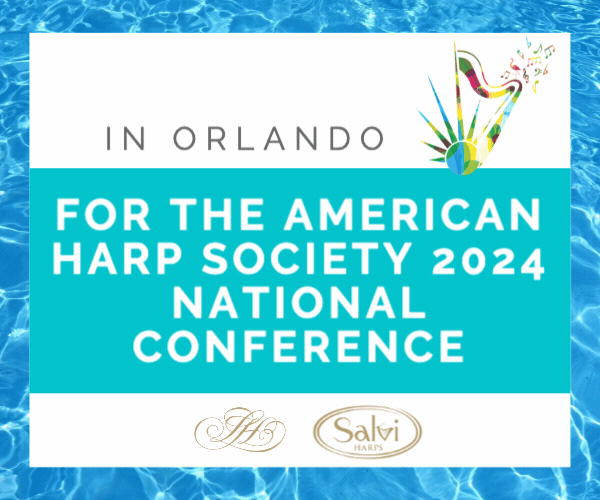Home › Forums › Teaching the Harp › books for beginners
- This topic has 2 replies, 2 voices, and was last updated 17 years, 7 months ago by
Evangeline Williams.
-
AuthorPosts
-
September 26, 2006 at 6:18 pm #88368
unknown-user
ParticipantI enjoyed reading the new edition of the Harp Column in which Carl
Swanson reviewed a number of new books for beginners including my
“Classics at Your Fingertips” series. I thought it could be useful to
engage in a discussion about various beginning materials, their
intended audience, and subsequent strengths and weaknesses.For example my series moves slower than other harp materials available.
This is intentional. Their purpose is to serve the needs of the adult beginner with no
musical background. The philosophy is to open the door of music making
to any individual regardless of their mental/physical giftedness at
music. These are not intended for professional track harpists except as
sight reading/supplementary material in their early stages of
development. The recreational adult harpist learns at a different pace
than the gifted youngster. With no background in reading music, it
takes the adult beginning a great deal of repetition to obtain facility
in sight reading. The use of finger two only for an extended period
allows such a student to focus on the task of learning to read music
without any complex focus on technique that could result in habits of
tension. The first volume also has the capacity to serve the special
needs student with limited neuromuscular functioning. This includes
arthritis, cerebral palsy, and parkinson’s like illnesses.My background of earning a doctoral minor in piano pedagogy (prior to my MM in harp) gave me the
opportunity to explore a wealth of materials created for the mainstream
or “average” student. Many of the piano methods for both children and
adult beginners follow a similar pace and are therefore marketable to
the general population with good success.September 27, 2006 at 1:22 am #88369unknown-user
ParticipantThe philosophy behind “Classics at Your Fingertips” is non-elitist. It is my passion to take any
person with a desire to play the harp and help them find the path. The
pieces are also designed with financial limitations in mind. The first
book remains primarily in the key of C, since many begin
on a Harpsicle or similar instrument. How can we assist the following
hypothetical students in their desire to play the harp:A 75 year old grandmother with arthritis whose lifelong dream was to
play the harp. Now her grandson has built her a lap harp with levers on
F, C, and B’s.A seven year old girl with cerebral palsy who has loved to draw
pictures of the harp and now finds she can take lessons. Her parents
make 12K a year and save to buy her a Harpsicle for Christmas.A busy mother of four grew up in a large family who could not afford
music lessons. She cannot read music and feels great apprehension about
learning to play, but needs a peaceful outlet that is her own. She
assures her teacher that she has no musical ability whatsoever. Her
family rents to own a 29 string lever harp for her.The goal of this series is answer the need of such
potential students. There are hundreds, if not thousands, of people
with
similar stories. Unlocking those first, often difficult steps towards
learning opens the door for each student to discover their individual
potential.During my formal pedagogy
training we were taught through example and research the usefulness of
having a method that provides multiple opportunities to reinforce each
new concept and technique to use as needed. Each student moves at a different pace. Some
concepts come more easily than others. This systematic reinforcement
provides the teacher with the flexibility to accomodate a diverse
student population.September 27, 2006 at 3:26 am #88370Evangeline Williams
ParticipantAs a music therapist, I think it’s great to see a harp book that could be used with folks with limited neuromuscular functioning.
-
AuthorPosts
- You must be logged in to reply to this topic.






